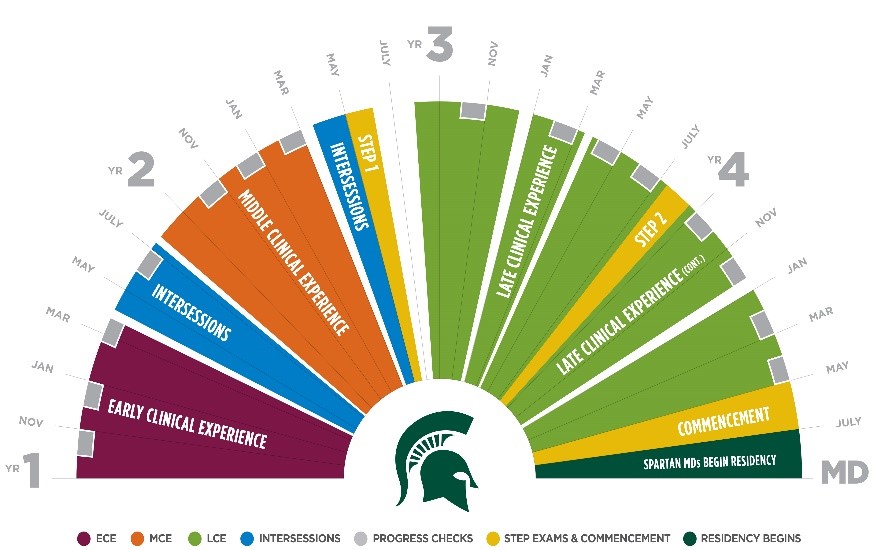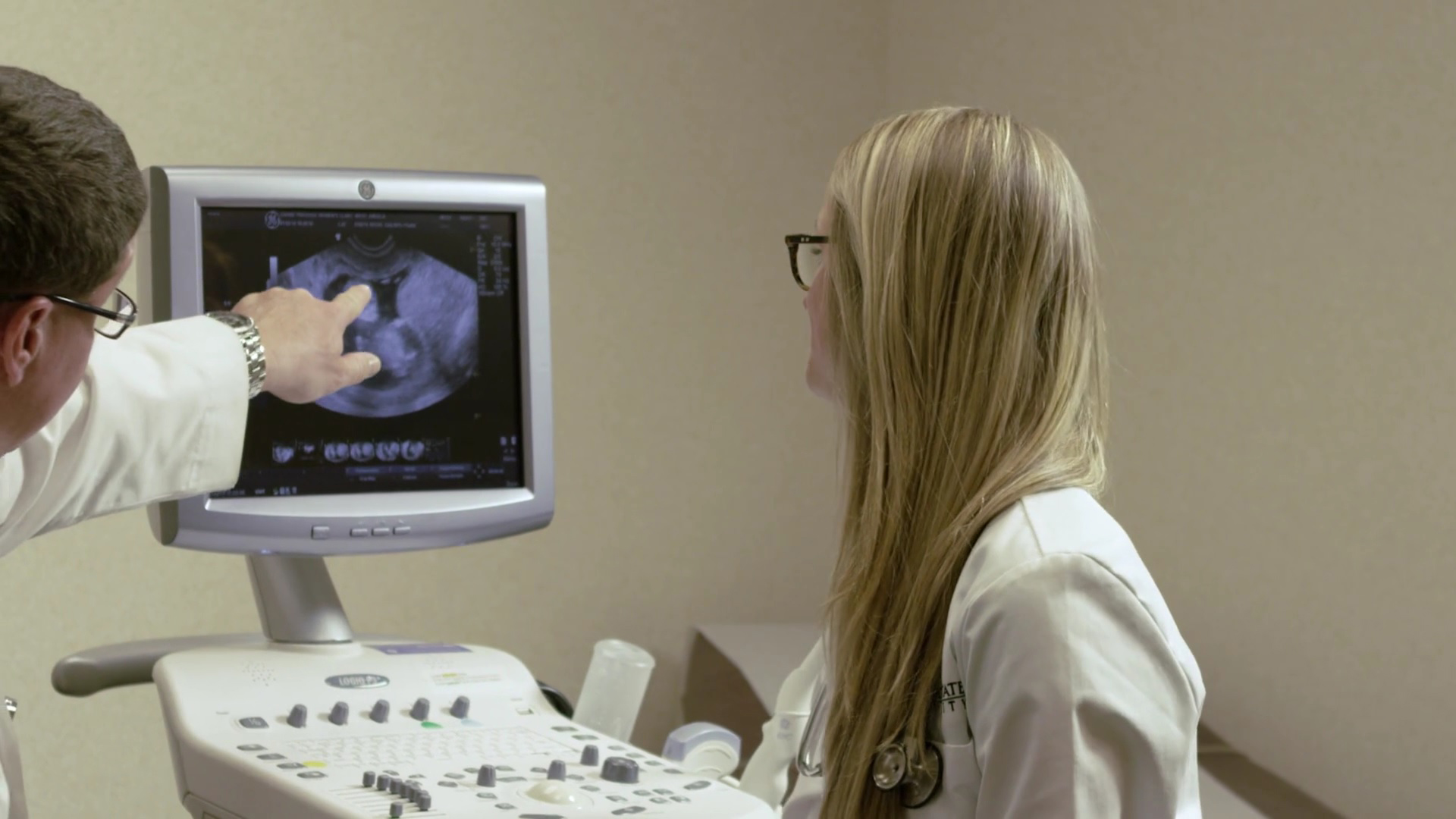Components of the Curriculum
There are four main components to the Shared-Discovery Curriculum:
- Early Clinical Experience (ECE)
- Middle Clinical Experience (MCE)
- Intersessions (IS)
- Late Clinical Experience (LCE)

Early Clinical Experience (ECE)
The primary goal of the early portion of ECE is to get students prepared to be safe (for themselves and in patient-care activities) in clinical settings. The curriculum emphasizes universal precautions, blood-borne pathogens, and basic physical exam and communication skills. Additional topics will include confidentiality, patient-physician relationships, caring for diverse patient populations, teamwork, and dealing with mistakes. In other words, it serves as a platform for initiating foundational knowledge for the study of necessary sciences and humanities of medicine.
The curriculum also initiates pertinent biomedical and bioethical topics, simulation with debriefing, large group activities, lab experiences, and highly structured independent study modules that form the foundation for early learning.
As an integrated part of the ECE, ambulatory (outpatient) experiences introduce students to patient care. Students serve a useful function in the primary care clinical setting. These clinical experiences are integrated with foundational biomedical science, utilizing group and independent learning strategies.
As a member of a clinical patient care team, students train and work with medical assistants, assist with patient education and care management (phone call follow-up, medication tolerance/side effects, smoking cessation, healthy diet), and learn from the full scope of patient care at an assigned clinical site.
Meanwhile, students study the basic and clinical science that relates to the conditions encountered often in these medical offices. The weekly curriculum includes simulation, large and small group sessions, labs, and independent study. Students also engage in a scholarly project with their clinical site.
A typical “Week in the Life” of a student during the Early Clinical Experience might look like this:

Middle Clinical Experience (MCE)
The MCE provides more advanced clinical experience in both ambulatory and inpatient care environments. The format/structure of learning remains similar to the ECE with continued integration of clinical work and necessary science. Students rotate through multiple clinical settings, learning with and from attending physicians, residents, respiratory therapists, physical therapists, pharmacists, social workers and other members of the health care delivery team.
| MCE Experiences | |
| Emergency Medicine | 4 weeks |
| Nutrition | 1 week |
| Women's Health | 4 weeks |
| Adult Inpatient Wards | 4 weeks |
| Pediatric Inpatient Wards | 4 weeks |
| Pharmacy | 2 weeks |
| Newborn Service | 2 weeks |
| Respiratory Therapy | 2 weeks |
| Social Work | 1 week |
| Palliative Care/Pain | 2 weeks |
| Nursing | 2 weeks |
| Physical Therapy | 2 weeks |
Middle Clinical Experience students will continue to have one Post-Clinic Group session to debrief and discuss the “Chief Complaint and Concern” of the week (chest pain or cyanosis, for instance), and will also meet in rotational small groups to discuss “Topics of the Week” relevant to their specific rotation.
Late Clinical Experience (LCE)
The LCE contains traditional disciplinary clerkship experiences (Internal Medicine, Family Medicine, Pediatrics, Obstetrics and Gynecology, Surgery, and Psychiatry. Having functioned in outpatient and hospital environments, your role on the health care team reflects the skills and experience you have acquired, enabling more robust participation in patient care.

Ample opportunities for elective experiences are available. Integration with necessary sciences continues, focusing on longitudinal clinical, scientific and social topics as part of Advanced Skills and Knowledge (ASK), a semester long course. The Learning Society small groups meet less frequently than during the ECE/MCE and require students to provide more intellectual leadership than in previous clinical experiences. Now there is time to pursue individual “certificates-of-emphasis”, such as Public Health, Leadership in Medicine for the Underserved, and Leadership in Rural Medicine.
Intersessions
Students engage in various four-week course blocks placed strategically after the ECE and MCE, which allow for tailored study based on individual needs and interests. Intersessions allow students to learn foundational material and focus on areas of relative weakness, offer time to explore other areas of health (research, public health, etc.), and provide dedicated preparation time for USMLE exams.
All students take four core intersessions. The other intersessions are selected individually to respond to a students needs and/or interests.

